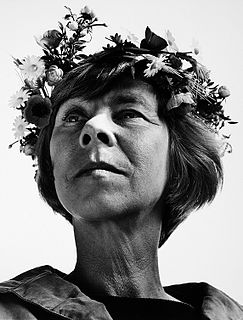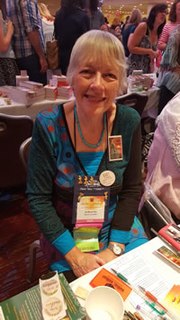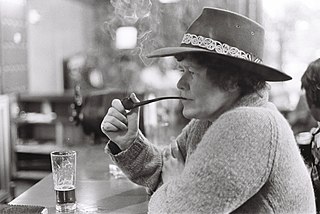A Quote by C. S. Lewis
This is the land of Narnia,' said the Faun, 'where we are now; all that lies between the lamp-post and the great castle of Cair Paravel on the eastern sea.
Related Quotes
The castle of Cair Paravel on its little hill towered up above them; before them were the sands, with rocks and little pools of salt water, and seaweed, and the smell of the sea and long miles of bluish-green waves breaking for ever and ever on the beach. And oh, the cry of the seagulls! Have you ever heard it? Can you remember?
But there'll be plenty of room on Earth then because right now, what is it?-Only one-fifth of the Earth's surface is land, right? Whereas then there will be no more sea, it'll all be land, seas will be gone. The seas are the World's great septic tanks, its great cesspools, where all the waste of the World drains off into the sea.
To the glistening Eastern sea, I give you Queen Lucy, the Valiant. To the great Western Wood, King Edmund the Just. To the radiant Southern sun, Queen Susan, the Gentle; and to the clear Northern sky I give you King Peter, the Magnificent. Once a king or queen of Narnia, always a king or queen. May your wisdom grace us 'til the stars rain down from the heavens.
Every schoolchild knows that Columbus set out across the sea to prove that the world was round. But the belief in a spherical earth had a long and illustrious pedigree, as Columbus himself was well aware. . . . "The second reason that inspired the Admiral [Columbus] to launch his enterprise and helped justify his giving the name 'Indies' to the lands which he discovered was the authority of many learned men who said that one could sail westward from the western end of Africa and Spain to the eastern end of India, and that no great sea lay between."
It's a bittersweet feeling because this [filming in Chronicles of Narnia] has been a part of my life for six years - from the age of 15 to 21. For anybody that's a big growing up phase, especially in the unique experience of Narnia. But I feel honoured to have been a part of it but the tools I learned from Narnia I'm now taking forward to my next project.
I love borders. August is the border between summer and autumn; it is the most beautiful month I know. Twilight is the border between day and night, and the shore is the border between sea and land. The border is longing: when both have fallen in love but still haven't said anything. The border is to be on the way. It is the way that is the most important thing.
It is a curious fact, but nobody ever is sea-sick - on land. At sea, you come across plenty of people very bad indeed, whole boat-loads of them; but I never met a man yet, on land, who had ever known at all what it was to be sea-sick. Where the thousands upon thousands of bad sailors that swarm in every ship hide themselves when they are on land is a mystery.
It isn't Narnia, you know," sobbed Lucy. "It's you. We shan't meet you there. And how can we live, never meeting you?" "But you shall meet me, dear one," said Aslan. "Are -are you there too, Sir?" said Edmund. "I am," said Aslan. "But there I have another name. You must learn to know me by that name. This was the very reason why you were brought to Narnia, that by knowing me here for a little, you may know me better there.
I have watched the river and the sea for a lifetime. I have seen rivers rob soil from the roots of trees until the giants came foundering down. I have watched shores slip and perish, the channels silt and change; what was beach become a swamp and a headland tumble into the sea. An island has eroded in silent pain since my boyhood, and reefs have become islands. Yet the old people used to say, People pass away, but not the land. It remains forever. Maybe that is so. The land changes. The land continues. The sea changes. The sea remains.


































